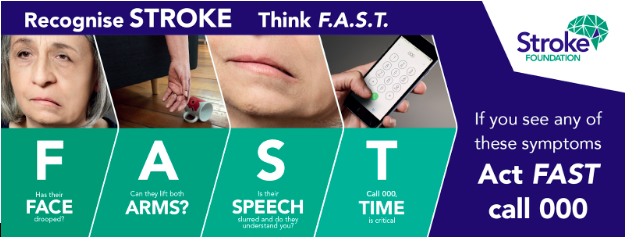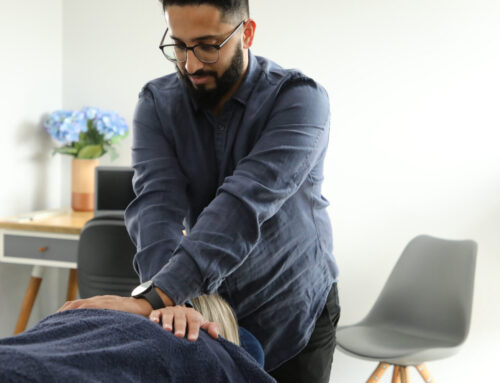National Stroke Week runs from the 2nd-8th of September, so what a great opportunity to help raise awareness and educate our readers on this condition. It may just help save a life!
Unfortunately, many of us know all too well how this awful condition can affect an individual and their family. Stroke is a leading cause of fatality in Australia and accounts for a large percentage of disability (1). It is also a lot more common than you may think, in fact:
One Australian has a stroke every 9 minutes (1).
A stroke involves a disruption of blood & oxygen to the brain, which can cause brain cells to die. The two most common types of stroke involve:
- Presence of a blood clot in a vessel leading to the brain
- Ruptured blood vessel that supplies blood to the brain
Symptoms
- Weakness, numbness or pins & needles in face, arms and/or legs
- Dizziness & loss of balance
- Nausea & vomiting
- Trouble seeing / loss of vision
- Altered speech
- Confusion or difficulty understanding
- Difficulty swallowing
- Sudden, severe headache this is unusual to your usual headache symptoms
- Neck pain with a combination of the above symptoms (Most often than not, neck pain is unrelated to serious medical events)
How to recognise & potentially save a life!
If you suspect someone is having a stroke, this is ALWAYS a medical emergency. You are not wasting ANYONE’S time if it is a false alarm!
Below is a good reference to be aware of. When it comes to strokes, the faster a person can receive treatment increases chances of a positive outcome.
(Image source: https://strokefoundation.org.au)
Whilst there are some risk factors of stroke that are out of our control (age, gender, family history or previous history of stroke), 80% of strokes can be prevented (1).
The following actions can be put in place to reduce your risk of stroke
- Avoid smoking or drinking excessive amounts of alcohol
- Engage in regular physical activity
- Avoid foods that are high in salt and saturated or trans fats
- Reduce stress levels
- Regular check ups with your doctor to manage your cholesterol, blood pressure & blood glucose levels.





